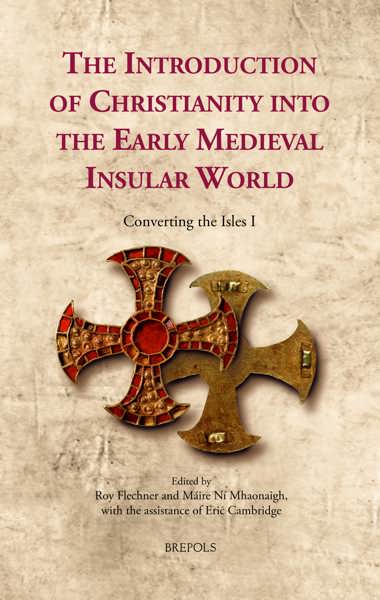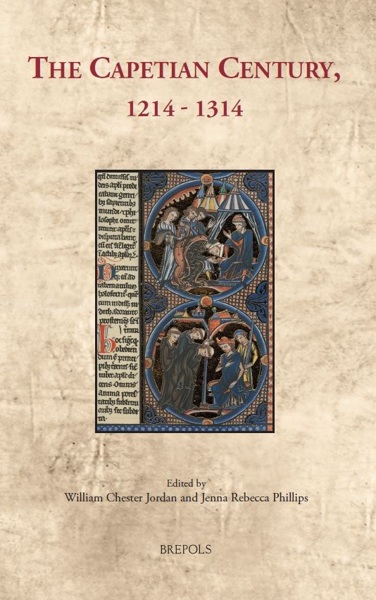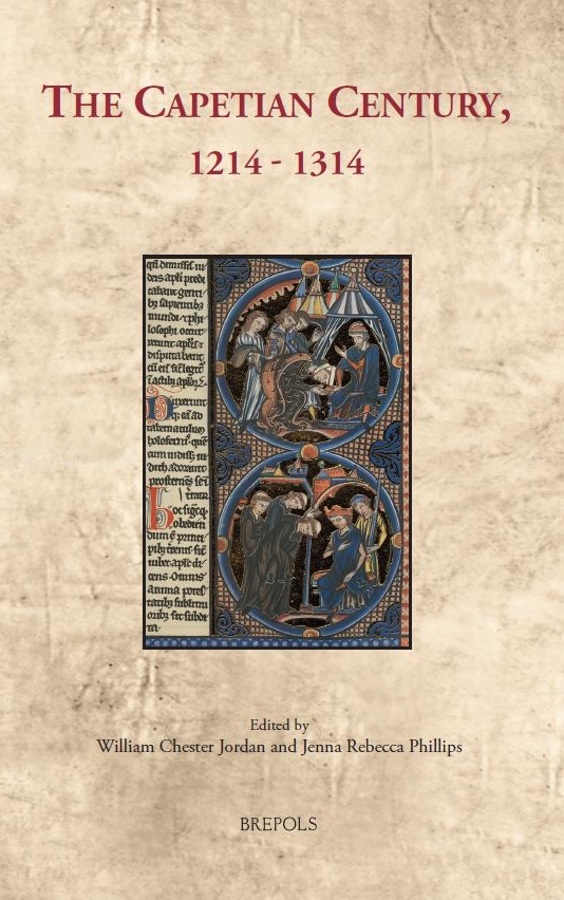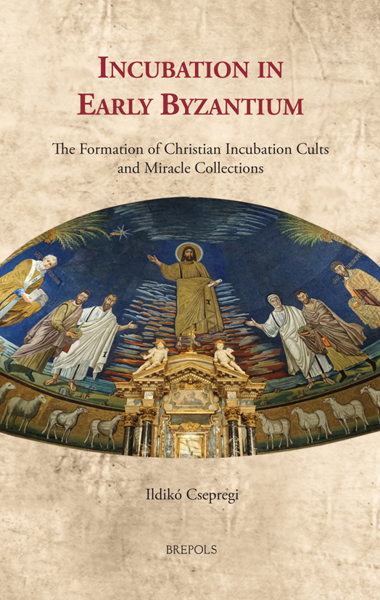
The Capetian Century, 1214 to 1314
William Chester Jordan, Jenna Rebecca Phillips (eds)
- Pages: 362 p.
- Size:156 x 234 mm
- Illustrations:28 b/w, 5 col., 1 Map
- Language(s):English
- Publication Year:2017
- € 110,00 EXCL. VAT RETAIL PRICE
- ISBN: 978-2-503-56718-1
- Hardback
- Available
- € 110,00 EXCL. VAT RETAIL PRICE
- ISBN: 978-2-503-56719-8
- E-book
- Available
The volume provides a fresh look at the Capetian century (1214-1314) as a period that changed the cultural and political fabric and laid the foundation for the modernisation of the medieval West.
“In general, The Capetian Century represents a substantial contribution to our knowledge on a range of subjects. It contains many excellent pieces of scholarship that add new perspective to historical debates and challenges both new and old.” (Nicholas Morton, in French History, 31/3, 2017, p. 377)
“In fact, some of the greatest strengths of this volume lie in the ways in which its contributors question long-entrenched lines of division and classification, provide broader contexts for the development and expression of royal power in France, and suggest new avenues for research.” (Jessalynn Bird, in Sehepunkte, 17 (2017), Nr. 11)
« Nous espérons que le lecteur de ce compte-rendu aura saisi l’apport de ce livre à l’étude de l’armature intellectuelle, morale et institutionnelle du royaume de France au XIIIe siècle, et surtout que l’histoire du développement de la puissance capétienne doit s’inscrire dans une échelle d’analyse européenne, en accueillant d’autres traditions historiographiques. » (Rémy Roques, dans Francia-Recensio, 4, 2017)
“The book itself is well-crafted, both aesthetically and organisationally.” (Derek R. Whaley, in Cerae, 4, 2017)
“(…) Jordan’s hope that this volume will offer new insights into established lines of enquiry is certainly fulfilled. The topics covered are, without doubt, important ones.” (Chris Jones, in Parergon, 35/2, 2018, p. 218)
“(...) there are some real riches contained herein, and collectively the chapters do provide something like a summative moment--particularly of North American study--from whence further such explorations could be mounted.” (John H. Arnold, in The Medieval Review, 10/01/2019)
“This is an exceptionally strong and thought-provoking collection of essays on the Capetians during the thirteenth century.” (Adam J. Davis, in H-France Review, 17, 2017)
“(…) this is a rich collection, especially for its valuable insights into the emergence of a practice and style of kingship that, in Théry-Astruc’s words, “transformed the King of France into a pope in his own realm” (Daniel Power, in Catholic Historical Review, Spring 2019, p. 359)
This volume provides a fresh look at the Capetian century (1214-1314), a period that changed the cultural and political fabric and laid the foundation for the modernisation of the medieval West.
The period from the birth of Louis IX to the death of Philip the Fair is remarkable for a series of developments and accomplishments associated with the Capetian kings of France. Innovations in architecture, manuscript illumination, and music all helped shape the cultural fabric of French and European life. Administrative historians emphasize the development of political institutions that have been said to lay foundations of the modern State. ‘Moral reform’, partly in support of the crusading movement, led to various changes in policies toward Jews, prostitutes, heretics, and many other social groups.
This volume brings together essays presented at the Capetian Century Conference held at Princeton University, commemorating two seminal anniversaries bracketing the ‘Capetian Century’ — the Battle of Bouvines (1214), and the death of Philip the Fair (1314).
List of illustrations
Introduction — WILLIAM CHESTER JORDAN
Royal Patronage and Expressions of Kingship
The Capetian Monarchy and the University of Paris, 1200-1314 — WILLIAM J. COURTENAY
Saint Louis and Cîteaux Revisited: Cistercian Commemoration and Devotion during the Capetian Century, 1214-1314 — ANNE E. LESTER
King/Confessor/Inquisitor: A Capetian-Dominican Convergence — SEAN L. FIELD
Kingship and Crusade in the First Four Moralized Bibles — M. C. GAPOSCHKIN
Power and its Representation
French Nobility and the Military Requirements of the King (ca. 1260 – ca. 1314) — XAVIER HÉLARY
The Managerial Revolution of the Thirteenth Century — HAGAR BARAK
The Ambiguity of Representation. Semiotic Roots of Political Consent in Capetian France — BRIGITTE MIRIAM BEDOS-REZAK
Philip the Fair and his Ministers
Philip the Fair and His Ministers: Guillaume de Nogaret and Enguerran de Marigny — ELIZABETH A. R. BROWN
The Pioneer of Royal Theocracy. Guillaume de Nogaret and the conflicts between Philip the Fair and the Papacy — JULIEN THÉRY-ASTRUC
Robert Fawtier’s Philip the Fair — ELISABETH LALOU
Crusaders and Crusading Orders
Travels, Troubles, and Trials: The Montaigu Family between Capetian France and Lusignan Cyprus — JOCHEN BURGTORF
An Upstart without Prospects? The Familial Context of Renaud of Châtillon and its Implications — PAUL F. CRAWFORD
What became of the Templars after the trial of 1307-14? — HELEN J. NICHOLSON
Index




